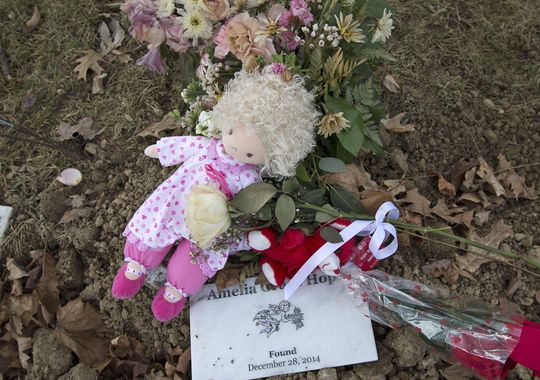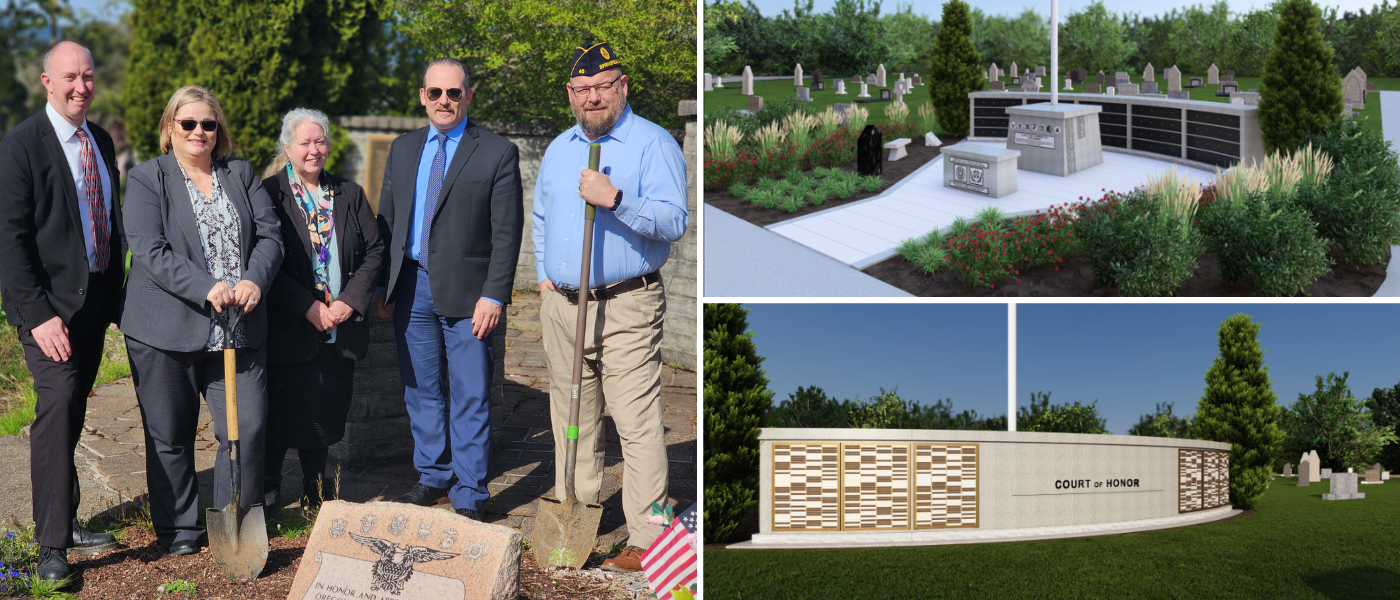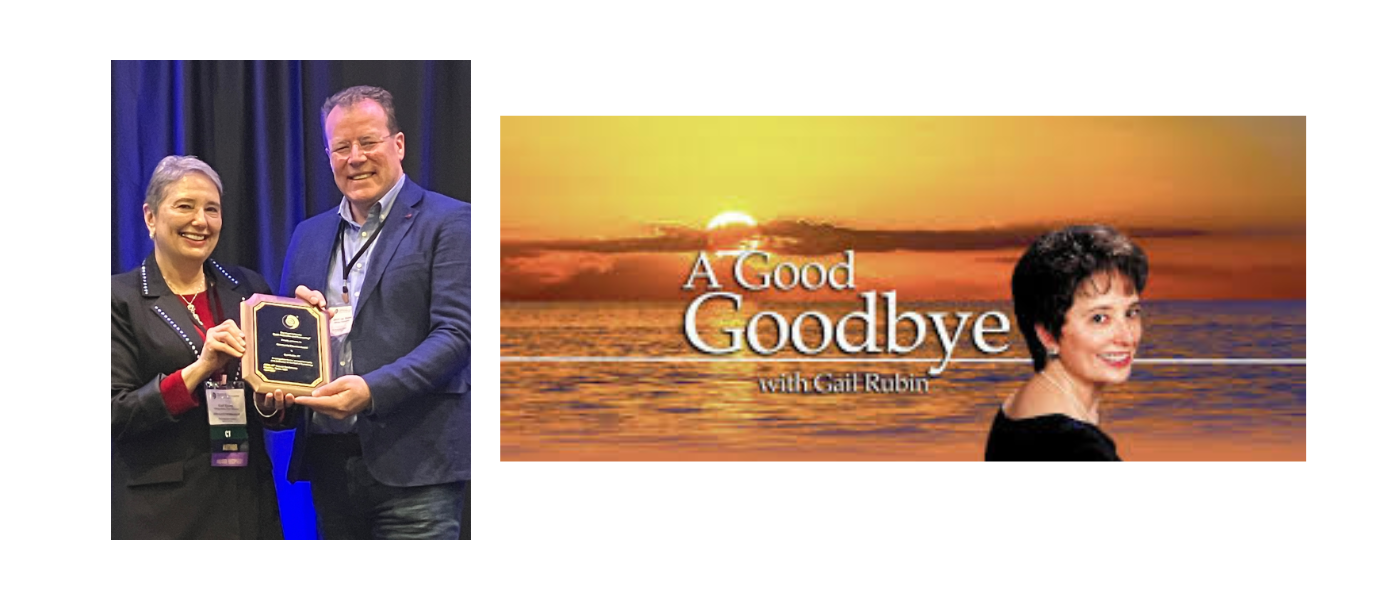Indianapolis woman gives abandoned babies dignity in death
The first dead baby Linda Znachko became involved with was found in a dumpster, wearing only a diaper.
She saw the news story about “Baby Doe,” saw the public outrage that was leading people to ask what kind of mother would do such a thing and in what kind of society do such things occur. Znachko wasn’t caught up in that. A suburban mother of four, she just wanted to know what would happen next to the baby.
So Znachko (pronounced za-KNOCK-o) called the coroner’s office. What she heard, she couldn’t believe: Unclaimed babies were buried without ceremony, without names, in unmarked graves.
“I was appalled, that in the 21st century, in our country and in this city, that still happens,” Znachko said. One thought overpowered her: A dumpster is not a grave. A diaper is not burial clothing. Doe is not a name.
She had to do something. She had to see the baby receive a proper funeral.
Znachko was willing to pay the cost. The problem was that there was a criminal investigation. She would have to wait until police had some answers. For more than a year she waited, while the baby lay in a morgue. She called the coroner’s office every Friday to ask for updates. One week she called and Chief Deputy Coroner Alfie Ballew gave her some news she didn’t expect: There’s another baby with no one to care for it.
This child was 5 months old and had a mother, but she was homeless. And what’s more, she wanted nothing to do with the baby. Znachko was shaken. “I was learning quickly,” she said, “about the many different ways that children are abandoned.”
Znachko went to the woman in her homeless camp. She offered to pay for the funeral. “When she rejected that, I felt the rejection. I thought if this is how I feel, I cannot imagine how this child would have felt.”
The woman did agree to let Znachko take care of things herself. When the baby was finally transferred from the morgue to the funeral home, Znachko wept. “Finally,” she thought, “he is safe and he is going to be taken care of.” His name was Zachary. And Znachko buried him in Washington Park East cemetery.
By this time, the coroner’s office began referring to the work of Znachko’s “organization.” But there was no organization. There was only Znachko, supported by her husband, Steve. And the money they’d used to bury Zachary had come from the family foundation they’d begun after Steve’s marketing business took off.
But the coroner’s words got Znachko to thinking. She realized she had stumbled onto an unmet need — giving dignity in death to babies who had been abandoned, babies that were often nameless. Her Christian faith told her God has a name for everyone. And that’s the name she would give to her new “organization”: He Knows Your Name.
The baby in the dumpster had put Znachko on this road and, after she’d been waiting 13 months to give him a proper burial, police said they had identified the baby boy’s mother. She hadn’t been thoughtless and uncaring. She had nearly died from complications of the birth.
Her son had lived for only 13 hours. And when he died, the mother, Nichole Moody, had left others to handle the arrangements. The baby had been put in the care of a funeral home to be cremated. For months after she recovered, Moody had tried to get the child’s ashes. But by some means authorities have never fully explained, the child wound up in the dumpster.
Znachko asked the coroner’s office to introduce her to Moody, who was devastated and distraught and unsure whom to trust. Eventually, she agreed to let Znachko put together a funeral for her son, whom she named Nicholas. He was buried with the dignity he’d been denied before. He was buried near Zachary, the baby rejected by the homeless woman.
Five years later, He Knows Your Name has grown into something Znachko never imagined. Her organization has assisted about 20 families with funeral expenses. In six instances, including for Zachary, Znachko has gone as far as taking legal custody of a child’s remains and giving it a burial — “adopting in death,” as she calls it.
The work has taken her to five other states beyond Indiana and to help more than just children. She went to Texas three years ago and helped with the funeral expenses for a mother who left behind five children. She went to California last fall and provided a headstone for the grave of a woman who left three children behind.
Closer to home, Znachko learned from a friend last summer that the family of 15-year-old Dominique Allen, who was murdered on the Westside in August, needed help paying for a headstone. Znachko worked with a local stone company, Thomas Monuments, to get a marker for the grave.
Znachko says everything about the path she’s taken has grown organically, without a 5-year-plan, without easy explanation. “I feel like God gave me an errand and I went on it,” Znachko said. “It hasn’t stopped yet.”
Most recently, Znachko pulled together the resources for a double funeral for two children — a newborn baby that was abandoned in the woods in Eagle Creek Park and a 1-year-old child who died in the care of a guardian while her mother was in prison.
The funeral was significant beyond the two caskets and the fact it drew nearly 100 mourners who, to the children, were complete strangers. Every aspect of the services — from the funeral chapel, to the cemetery plot, to the caskets and embalming, to the flowers and the burial gowns made from re-purposed wedding dresses — was donated.
Znachko, who was alone in her first call to the morgue a few years ago, considers that a victory for compassion. “It is so evident to me,” she said, “that after five years of doing this that God is absolutely changing the city of Indianapolis.”
At least in the circles that Znachko travels, it is a city of heavy hearts.
Nichole Moody, the mother of Nicholas, is still trying to grapple with the despair she feels from knowing her baby was put into a dumpster. And she hasn’t had to face that alone. Znachko has remained in her life, counseling her away from drinking, away from drugs and into church. She asked Moody to read the Scripture at the double funeral.
“She’s like a mom to me,” Moody said.
Charlotte Laudig was present for the double funeral as well. She wept in the chapel during the service and stood in the cold by the gravesite with her husband, Jerry.
A year ago, Znachko paid for the headstone they’d been unable to buy for their stillborn baby for 42 years. Their family did pay for a funeral, but they’d never been able to buy the grave marker. A cemetery employee who had seen them looking for their child’s grave introduced them to Znachko. When she bought the headstone, the Laudigs struggled to believe it was true, until the cemetery produced a piece of paper stamped with the word “PAID.”
“I about died,” said Charlotte Laudig. “We call Linda our angel.”
The dedication of the headstone was significant, too, to the Laudig’s son, Jerry Jr. For one thing, it made the older sister he never knew finally seem real. But it also caused him to ache for his own baby, a son who died a crib death 16 years earlier and who also was without a headstone. He asked Znachko if she could help him. And she bought him a headstone, too.
“She’s a godsend,” he said.
Znachko sees the opportunities to help as a privilege, but she’s also amazed at how there’s never an end to the errands.
“When I drive away from the cemetery, this is how this always goes,” Znachko said. “I do one thing and there’s always another thing to do. I never leave and I’m done. It multiplies constantly.”
That the work has fallen to a 54-year-old housewife might seem unlikely. She’s never had formal training as a grief counselor. She’s never experienced a personal tragedy with a child.
She now finds herself on a first-name basis with people in the coroner’s office and with people in the funeral business. When she takes responsibility for a child’s remains, the death certificates for the babies come to her mailbox. So, too, do autopsy results that sometimes detail what the elements and animals can do to a baby that’s abandoned in the wilderness. She has borne not only the weight of these responsibilities, she has also borne the weight of a casket she carried into the most recent baby funeral — a small box, wrapped in white fabric, no bigger than a bread basket. In the cases where she “adopts” a child that has died recently, the journeys end at an open grave, one awaiting a child that may have never drawn a breath or one that lived maybe a few hours. Essentially, she is walking through the valley of the shadow of death.
Yet, in some ways, Znachko feels well-equipped for the task.
For 15 years, she has led a small group Bible study for women and she considers the time in meditation and study to be good training. But the intimate setting has also put her on the listening end of women telling stories of stillbirths and miscarriages, abortions and infertility — giving her the wide-angle view of maternal grief. It’s a key reason why — when the news site comment boards light up with scorn for the mothers of the latest abandoned baby — Znachko holds her fire.
“She’s got such a nurturing heart. And it is not just the babies,” says her husband Steve, who has preached in churches they’ve been a part of and in overseas missions they support.
“She has a heart for the tragedy behind a mother that would dump a child. There’s never been any judgment. There’s only been sorrow. She feels so drawn to the tragedy of the community and the tragedy of the parents. Of saying what must it have been like for a mom and a dad to dump a baby.”
Linda Znachko says it is a growing recognition that she doesn’t know everything that the women who abandon babies are facing. “Oftentimes,” she said, “there’s way more going on than I can ever imagine.”
Znachko is learning how to use what she does know to powerful effect.
Last week, she stood before a House committee to make the case for a cause she hopes will reduce the number of abandoned dead babies — an expansion of the state’s Safe Haven law.
The law allows a person to give up custody of an unwanted infant in places such as emergency rooms, fire stations and police stations without fear of arrest or prosecution, so long as the child is unharmed and is less than a month old. But it hasn’t stopped the tragedies.
Advocates for change say many women are too afraid or too ashamed to hand over their babies to another human being. Many, after all, have worked for months to keep their pregnancies hidden from parents or others. The solution, Znachko and others contend, is the creation of a system of drop boxes, where mothers can place their babies anonymously. The boxes would be wired with an alarm that would alert emergency agencies within 30 seconds that a child has been turned over.
In the Statehouse, Znachko made her case by painting a stark image of a baby she recently “adopted” — the child found in the woods of Eagle Creek Park. She drew from the autopsy report to describe how the placenta and umbilical cord were still intact. “There’s no dignity in that,” she said.
Znachko wants the baby drop boxes to be the legacy of baby Amelia, the name she chose for the child from Eagle Creek Park. It’s similar to how she wants to build legacies for some of the other babies she’s encountered in her ministry, which includes even some older children.
In 2010, three boys jumped the fence on a warm night and went swimming in the Douglass Park swimming pool. One of them, 13-year-old Timothy Bray, drowned. Znachko assisted the family with a headstone, but she also set up a scholarship in Timothy’s name that paid for water safety courses for kids from the neighborhood.
In 2012, 5-year-old Donasty Smith was killed in a school bus crash on the Southeastside. Znachko helped with the funeral costs and the headstone. But she also took up the family’s cause: advocating for seat belts on school buses.
In 2013, a dead infant was discovered in a creek on the Eastside. Znachko adopted him and named him Moses, since he had been taken from the water, and provided him a burial. Among those who attended were members of Faith United Methodist Church, which is located near where the child was found. A year after Moses’ funeral, there was a break-in at the church. Thieves took roughly $300 in coins the children had collected for a project in the Congo. Part of the project included building a school to train midwives to safely deliver babies. Znachko heard about the theft and made a donation from her foundation in Moses’ name — for twice the amount stolen.
For Znachko, the bedrock of her faith and of her work is this: To bring light into darkness.
That, says Znachko, is the essence of what her ministry is about: “I want to really flip the story and say, ‘Yes there is a tragedy. Yes, it was hard. But let’s remember the life and the name of the child.'”
[H/T: Indy Star]




